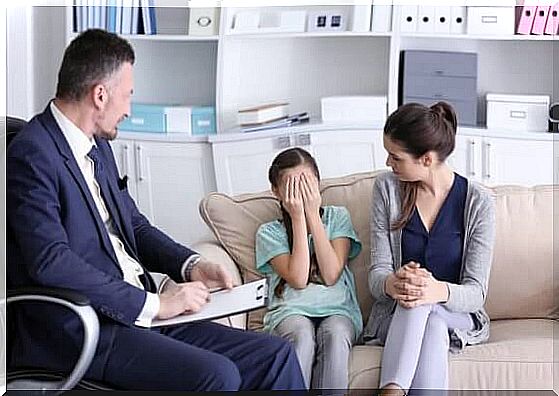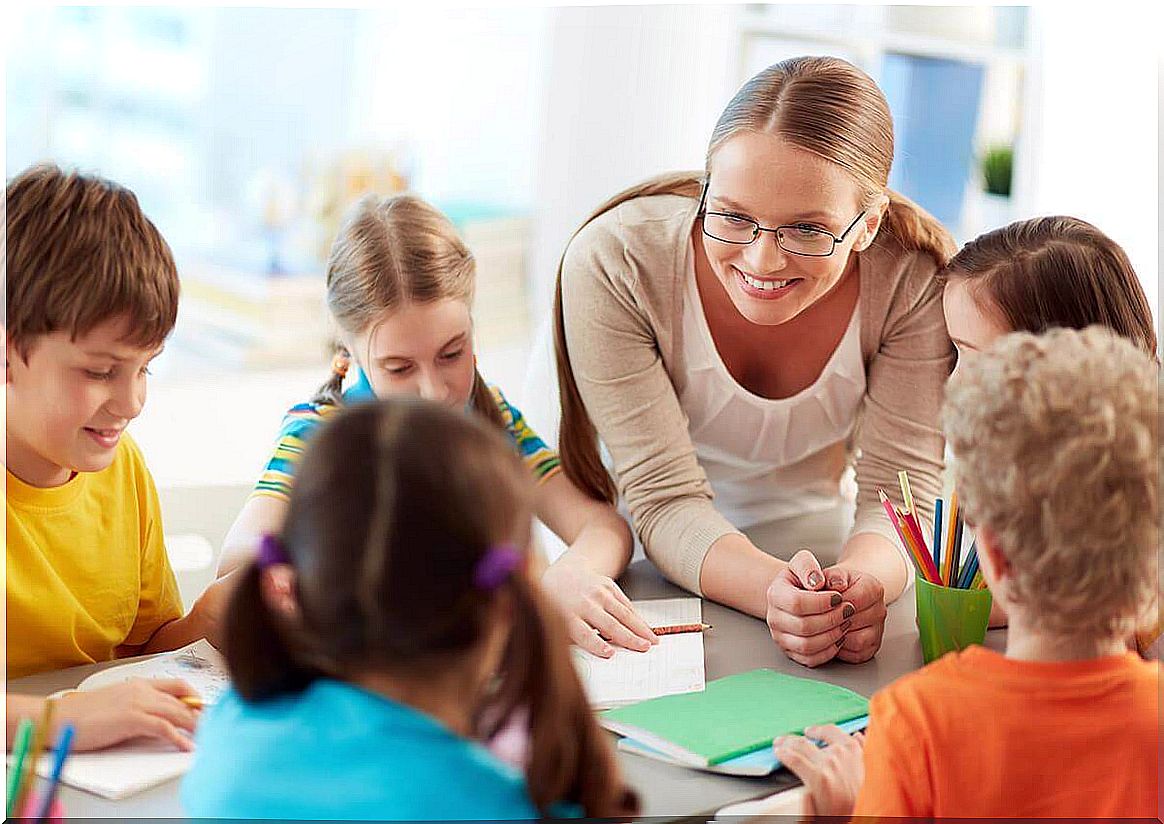8 Questions To Ask Our Children’s Teachers
Children’s education begins at home and continues at school. Good communication with our children’s teachers is a great way to support the training process.

Our children spend a good part of the day at school. It is therefore fundamental that the communication we maintain with our children’s teachers is good, in order to be able to support and strengthen their learning process within the school.
At school, children don’t just learn: they socialize, make friends, and their emotions are strained. Your children will be your first source of information, but you will obviously also need to know the point of view of his teachers, because they are with them that they share a good part of the day.
8 key questions to ask your children’s teachers
Your children’s education begins at home and continues at school. Conversely, you can help your children a lot at home in their learning process which takes place at school.
To do this, below are some key questions to ask your children’s teachers that will allow you to examine academic performance in the classroom as well as the relationships they have in the school environment.
1. How is my child’s performance at school?

The first thing to ask your children’s teachers is how they are doing in school. This goes well beyond the notes that might appear on a ballot or on a tally sheet.
You should ask your children’s teachers if they are doing well while they are in class. It is important to know if they are focusing on classroom activities, if they show an interest in the learning process, or if they complete their assigned tasks on time.
2. What is the work methodology used in class?
You must find out about this beforehand. Indeed, when choosing in which establishment your child will spend his education, you must know the working methodology that takes precedence. The teacher’s response will certainly be linked to the educational line of the establishment in question.
It is important to know whether teachers give homework to do outside of school hours or whether they prefer the whole process to be classroom-centered, whether it is an open school or whether it is they work in projects. And, of course, you have to accept this working methodology.
Not supporting the school’s work methodology makes no sense, and neither does deciding to reinforce your child’s learning with the opposite methodology. In this event, the result in the child may be confused.
3. How can I support my child from home?
The learning process can be reinforced and improved at home. This is why it is important to keep in mind that the role of parents is to eliminate doubts and check that the commitments made are respected. It is not about doing homework for your children or overloading them with extra tasks.
When parents participate in the schoolwork that children develop at home, it is important to consider the following factors:
- Establish a study plan with the teachers
- Make sure children can study or do their homework in a quiet environment
- Make sure children have had a good rest beforehand when studying and doing their homework
- Set rules so that study time is hassle-free and is not associated with punishment
4. Is there a stimulating way to encourage student efforts?
Ask your children’s teachers how they value the efforts of their students. Again, it’s about looking beyond school grades. Find out whether in the classroom or even within the school there is some kind of recognition given to students who stand out for their performance.
It is also good to know how children’s effort is stimulated: how often does the learning environment change? If the children have the opportunity to talk and make suggestions, what stands out the most? How often can children get up and sit down? Etc.
5. How do my children behave in class?
The subject of a child’s good behavior includes respect for teachers and classmates as well as respect for the rules established within the school, or the way in which he relates to other children. It is certain that if the children behave badly, the teachers will immediately alert the parents.
And even if you do not have any feedback from the teachers, we recommend that you reach out to them yourself and ask them what is going on. It is also important to make sure that your children are respectful, kind and friendly children.
6. How is my children’s interaction with their classmates?

School is the space where the child makes his first friends and where he establishes his first relationships. Knowing how your child relates to their peers is part of their well-being.
Your children’s teachers should tell you if they share things and play with their classmates during recess, if they are able to work in a team, and how they behave when they are with their group of friends …
7. What are the procedures to follow when a student behaves badly?
This is a fundamental question. You need to know whether or not your children’s teachers are in favor of punishment, and what action is taken for behavioral problems in children.
Bullying is a growing problem around the world. It is important to know what procedures to follow in the event that your children turn out to be victims or stalkers.
8. How can I help teachers to improve the situation if necessary?
Parents often leave their children at school and do not cooperate in any way with what is going on there. They just read the report card or converse with teachers only when invited to do so.
Offer to help during school days or with any activity that requires parental involvement. Education is common work. Your support for this community that is the school will benefit your children.









